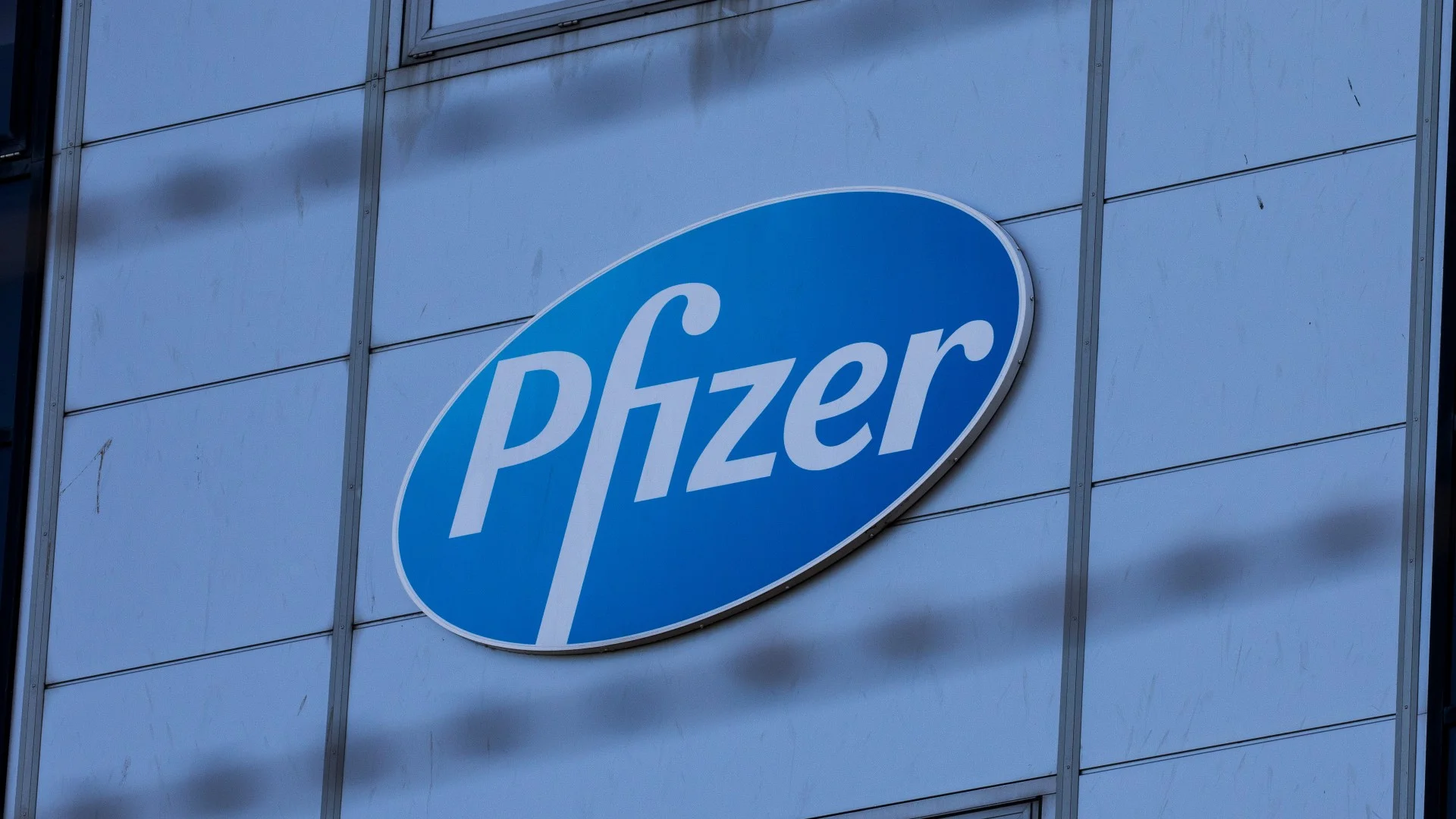Pfizer, a global name synonymous with advancements in healthcare, boasts a rich history dating back to 1849. Founded in New York City by Charles Pfizer and Charles Erhart, the company has evolved from its humble beginnings as a chemical manufacturer to become a leading biopharmaceutical giant, dedicated to discovering, developing, and delivering life-changing medicines and vaccines across the globe.
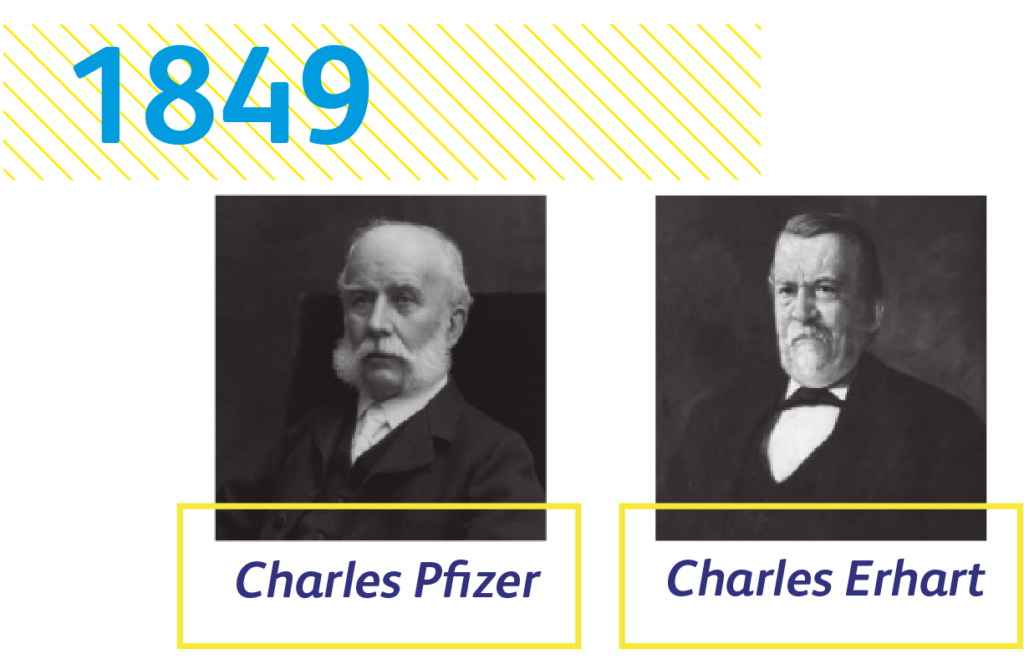
Pfizer’s commitment to scientific innovation has been instrumental in addressing some of humanity’s most pressing health challenges. Throughout its long and distinguished history, the company has produced groundbreaking treatments for various conditions, including immunology, oncology, cardiology, endocrinology, and neurology. Some notable examples include:
- Antibiotics: Pfizer played a crucial role in developing and manufacturing penicillin, the first widely used antibiotic, which revolutionized the treatment of bacterial infections.
- Vaccines: The company has been a leading force in vaccine development, contributing to vaccines for polio, meningitis, and most recently, COVID-19.
- Cancer treatments: Pfizer has developed innovative drugs for various cancers, such as breast cancer, prostate cancer, and lung cancer, offering new hope to patients and improving survival rates.
Today, Pfizer stands at the forefront of medical research, continuously pushing the boundaries of science to develop novel therapies and vaccines. Its extensive portfolio encompasses over 150 products across 15 therapeutic areas, addressing a wide range of illnesses. This includes established medications like Lipitor, a cholesterol-lowering drug, and Viagra, used to treat erectile dysfunction.
Pfizer’s robust and diverse pipeline holds the potential to revolutionize the fight against some of the most dreaded diseases of our time. The company is actively researching and developing new treatments for various conditions, including:
- Alzheimer’s disease: Pfizer is exploring novel avenues to combat this debilitating neurodegenerative disease.
- Rare diseases: The company is committed to developing treatments for rare and often neglected diseases, aiming to improve the lives of patients with these conditions.
- Personalized medicine: Pfizer is investing in personalized medicine approaches, tailoring treatments to individual patients based on their unique genetic makeup.
Beyond its scientific endeavors, Pfizer is committed to social responsibility and sustainability. The company actively seeks to improve access to healthcare in underserved communities and implements sustainable practices throughout its operations.
Looking ahead, Pfizer remains dedicated to its mission of “delivering breakthroughs that change patients’ lives.” As the company embarks on its 175th anniversary in 2024, it is well-positioned to continue its legacy of innovation and make a lasting impact on global health.
Marketing Strategies of Pfizer
Pfizer employs a sophisticated and multi-faceted marketing strategy designed to maximize the reach and influence of its innovative medicines and vaccines. Here’s a breakdown of its key components:
1. Product Portfolio
Pfizer boasts a comprehensive healthcare product portfolio encompassing three key areas: medicines, vaccines, and consumer health products.
Within the vast array of medicines, Pfizer addresses a spectrum of ailments. They offer pain relief with Advil, manage anxiety and panic disorders with a popular medication, and tackle erectile dysfunction through their established treatment. Beyond these, Pfizer holds a strong presence in crucial areas like cancer, heart disease, and diabetes with renowned drugs like Eliquis, Enbrel, and Xeljanz.
Pfizer further extends its reach through a robust vaccine portfolio. Notably, they co-developed the widely recognized Comirnaty COVID-19 vaccine with BioNTech. Additionally, their recent development of Paxlovid, a novel COVID-19 oral treatment, highlights their continuous innovation in the face of evolving healthcare needs.
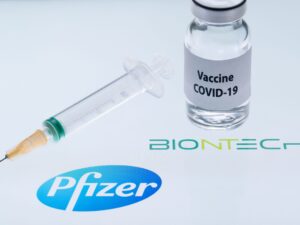
Rounding out their offerings, Pfizer owns several trusted consumer healthcare brands. Familiar names like Centrum vitamins, Caltrate for bone health, and ChapStick lip balm fall under their umbrella. Additionally, they cater to cough and cold relief with Dimetapp and Robitussin, demonstrating their commitment to addressing everyday health concerns.
Pfizer prioritizes continuous advancements in healthcare through their unwavering focus on research and development. They strive to consistently deliver a pipeline of new medicines and vaccines, while simultaneously seeking innovative partnership models to accelerate discoveries and propel the future of healthcare.
2. Research and Development (R&D)
Pfizer’s robust research and development (R&D) strategy revolves around collaboration, innovation, and a diverse focus. They actively engage healthcare professionals in designing medicines, conducting clinical trials, and deepening their understanding of treatment approaches. This collaborative spirit extends beyond their walls, as they partner with entities from academia, government, and the private sector. Their successful collaboration with BioNTech on the COVID-19 vaccine exemplifies the strength of this approach. Additionally, the R&D Rotational Program showcases their commitment to fostering a diverse and talented workforce within the R&D field.
Pfizer’s R&D facilities, like the one in Chennai, are equipped to explore various avenues of healthcare advancement. This specific center focuses on areas like small-molecule technologies and sterile injectables, contributing to their broader R&D efforts. The Extractables and Leachables group further exemplifies their meticulous approach by utilizing advanced technology to analyze containers and closures, ensuring the safety and efficacy of their medicines.
Pfizer’s R&D portfolio is not limited to a single field. They actively explore diverse areas such as small-molecule drugs, large-molecule biotherapeutics, cell and gene-based therapies, and vaccines. This broad focus allows them to pursue innovative solutions for a wide range of unmet medical needs, ultimately contributing to advancements that significantly impact global healthcare.
3. Global Presence
Pfizer boasts a significant global presence, extending its reach across continents and impacting healthcare worldwide. Their manufacturing network spans over 35 sites in six continents, ensuring efficient production and distribution of essential medicines and vaccines. Notably, they established parallel supply chains in the US and Europe to guarantee the availability of critical vaccines.
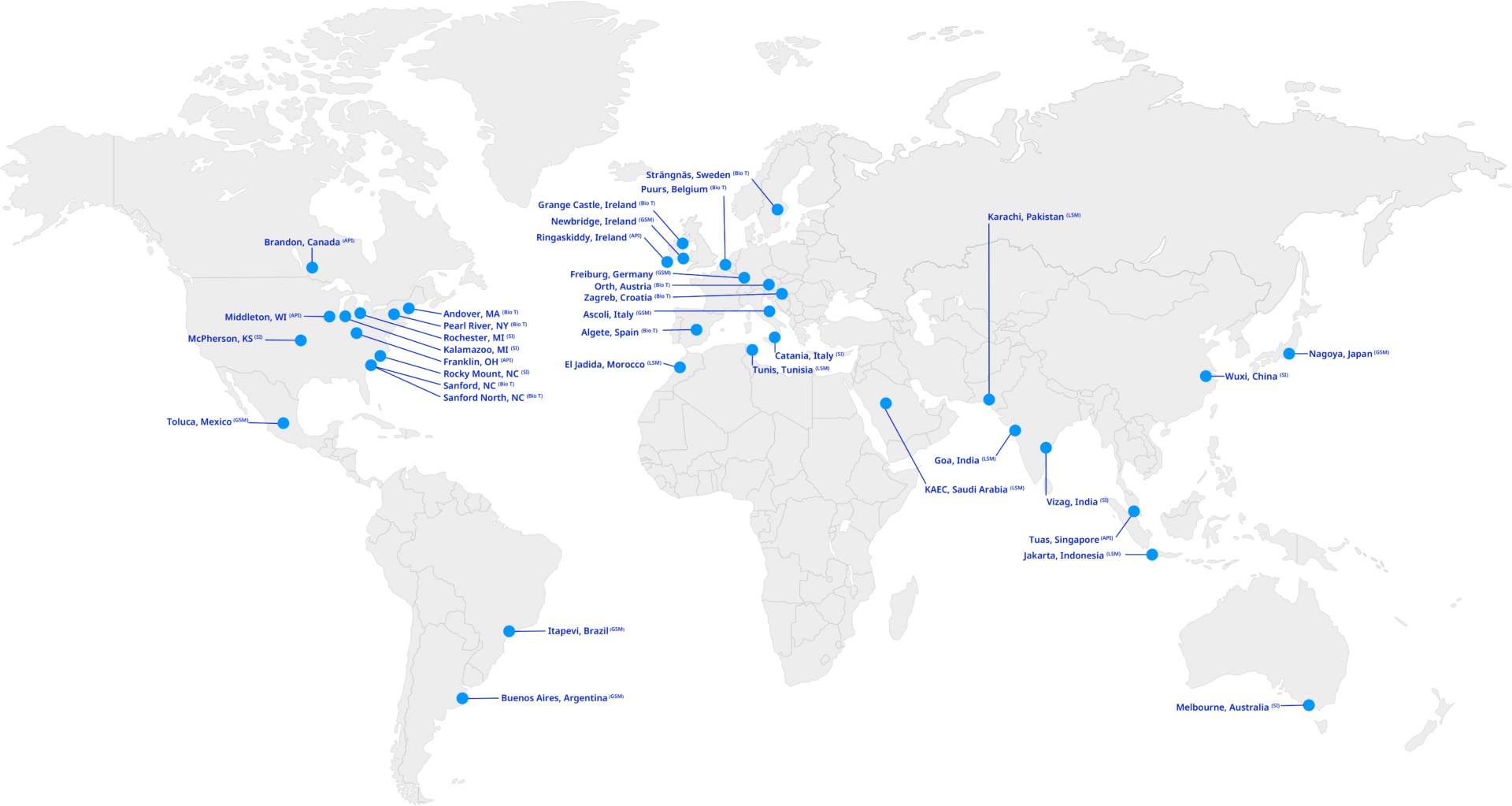
Pfizer’s products touch the lives of people in over 180 countries. They cater to diverse regional needs, offering a wide range of well-known medications, from pain relievers and anxiety treatments to erectile dysfunction solutions and the widely recognized COVID-19 vaccine. This extensive reach allows them to significantly impact global health outcomes.
Beyond manufacturing and product distribution, Pfizer has established a physical presence in numerous countries. Their locations span across Europe, Asia, Africa, and the Americas, demonstrating their commitment to serving diverse populations and collaborating with local communities around the world. This global footprint positions them strategically to address evolving healthcare needs across the world.
4. Strategic Partnerships
Pfizer actively seeks strategic partnerships to accelerate advancements and broaden their reach in the healthcare landscape. They collaborate with various entities, including biotech companies, academic institutions, and service providers.
One notable partnership is with BioNTech, which led to the development of the widely recognized COVID-19 vaccine. This collaboration exemplifies the power of combining expertise to address global health challenges. Additionally, Pfizer collaborates with ICON and Parexel to streamline clinical trials, improving efficiency and cost-effectiveness in their R&D efforts.
Pfizer extends its strategic partnerships beyond traditional research collaborations. In April 2023, they announced an agreement with Sinopharm to gain access to the Chinese market for 12 innovative drugs. This partnership demonstrates their commitment to expanding their global reach and making their treatments accessible to a wider population.
Furthermore, Pfizer collaborates with companies like LianBio to leverage their combined expertise and accelerate the development of new therapies for patients. This collaborative approach allows them to draw on complementary strengths and expedite the delivery of new treatments to those in need.
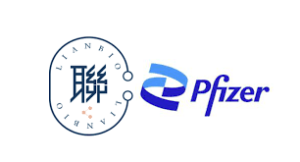
By fostering strategic partnerships with diverse entities, Pfizer remains at the forefront of healthcare innovation and ensures wider access to life-saving treatments across the globe.
5. Patient Assistance Programs
Pfizer recognizes the financial challenges patients may face when accessing necessary medications. To address these concerns, they offer various patient assistance programs, ensuring access to their treatments for a wider population.
The Pfizer Patient Assistance Program (PAP) serves as a cornerstone of their patient support initiatives. This program provides free or discounted Pfizer medicines to eligible patients who meet income guidelines. Additionally, patients can receive medication assistance either through their doctor’s office or directly at home, offering them flexibility and convenience.
Beyond the PAP, Pfizer offers targeted programs for specific medications. For instance, the Pfizer enCompass Co-Pay Assistance Program and the Factor Savings Card provide financial assistance for out-of-pocket costs associated with specific treatments, helping patients manage the financial burden of their healthcare needs.
Pfizer’s commitment to patient support extends beyond financial assistance. Programs like Pfizer Oncology Together and Pfizer Hemophilia Connect offer patients additional resources, including reimbursement support, insurance counseling, and centralized support services. This holistic approach aims to empower patients and caregivers by providing them with the information and resources they need to navigate the complexities of their healthcare journey.
Overall, Pfizer’s patient assistance programs demonstrate their dedication to ensuring broader access to their treatments and improving the well-being of patients nationwide.
6. Medical Education Initiatives
Pfizer champions the continuous learning and development of healthcare professionals (HCPs) through various medical education initiatives. Recognizing the significant impact of a well-equipped and knowledgeable healthcare workforce, they offer diverse programs to enhance the skills and expertise of HCPs.
One key initiative is the Pfizer Global Medical Grants program. This program provides funding for independent medical education programs, empowering HCPs to stay abreast of the latest advancements in their field. These programs, accredited or non-accredited, cater to a wide range of learning needs and preferences.
Pfizer’s commitment extends beyond medical education with their Competitive Grants Program. This broader program supports independent global initiatives in various areas, including research, quality improvement projects, and educational programs. Ultimately, these initiatives aim to improve patient outcomes by fostering innovation and advancements in healthcare delivery.
Furthermore, Pfizer actively supports Continuing Medical Education (CME) programs at various institutions. These programs, offered at academic medical centers, teaching hospitals, and community hospitals, provide accessible learning opportunities for HCPs across diverse practice settings. Additionally, Pfizer recognizes the valuable contributions of independent organizations and offers grants to support their efforts in improving patient care. These grants specifically focus on funding quality improvement initiatives and continuing education programs, empowering independent entities to contribute significantly to the healthcare landscape.
7. Advertising and Campaigns
Pfizer utilizes diverse advertising and marketing campaigns to reach various audiences and promote its products and initiatives.
One notable campaign is for Paxlovid, an FDA-approved COVID-fighting pill. This commercial focuses on the “human spirit” and utilizes light branding, aiming to connect with viewers on an emotional level while subtly promoting the medication.
Beyond product promotion, Pfizer collaborates with celebrities to raise awareness for specific health issues. A recent campaign features Lady Gaga to educate the public about migraines, while earlier partnerships with musicians like John Legend promoted COVID-19 boosters.
Pfizer also leverages major events to reach a broader audience. Their “Here’s to Science” campaign, unveiled during Super Bowl LVIII, showcased their vision for the future of oncology through a national ad using Queen’s iconic song “Don’t Stop Me Now.” Additionally, they partnered with a prominent athlete earlier in the season to promote COVID-19 booster awareness.
https://www.youtube.com/watch?v=jJkm2gxMRzU
Furthermore, Pfizer participates in collaborative efforts to address public health concerns. The “Because of This” campaign, launched in partnership with BioNTech and healthcare associations, aims to inspire confidence in the COVID-19 vaccine through public service announcements broadcasted on television and various online platforms.
Through these diverse advertising and marketing strategies, Pfizer effectively engages with the public, raises awareness for various health issues, and promotes its commitment to scientific advancements and public well-being.
In conclusion, Pfizer’s marketing strategies exemplify a multifaceted approach that combines global reach, digital innovation, and a commitment to research and development. The company’s diverse product portfolio, strategic partnerships, and adherence to regulatory standards underscore its position as a leading player in the pharmaceutical industry.
Marketing Mix of Pfizer
Pfizer has established its brand through a strategic marketing mix. This approach, encompassing the “4Ps” of Product, Price, Place, and Promotion, plays a crucial role in driving the company’s success. This part delves into each element of Pfizer’s marketing mix, analyzing how they interact to position the company in a competitive and ever-evolving healthcare landscape –
1. Product
Wide-ranging Portfolio: Pfizer offers a vast portfolio of medicines, vaccines, and consumer health products, addressing a multitude of disease areas and conditions. This includes both prescription drugs and over-the-counter medications.
Innovation at the Core: Pfizer invests heavily in research and development (R&D). The company dedicates significant resources to create breakthrough therapies, often targeting unmet medical needs or improving upon existing standards of care.
Focus on Quality and Safety: Pfizer adheres to rigorous quality control and safety standards throughout its development and manufacturing processes. Patient well-being is paramount.
Branding and Packaging: Products are carefully branded to create strong recognition and association with positive healthcare outcomes. Packaging is designed for both safety and user convenience.
2. Price
Value-Based Pricing: Pfizer’s pricing strategies factor in the therapeutic value of its innovations, research costs, market competition, and overall healthcare landscape.
Differentiated Pricing Across Markets: Prices for the same drug can vary significantly between countries due to factors such as healthcare regulations, purchasing power, and government negotiations.
Patient Assistance Programs: Pfizer offers patient assistance programs to help individuals who may have difficulty affording medications. These programs can include discounts, co-pay assistance, or free medications.
Negotiations with Payers: Pfizer engages in extensive negotiations with insurance companies, pharmacy benefit managers (PBMs), and government agencies to determine reimbursement rates and formulary placement.
3. Place
Global Distribution Network: Pfizer leverages a well-established global distribution network to ensure its products reach patients worldwide. This includes partnerships with wholesalers, pharmacies, hospitals, and clinics.
Direct to Physician Channels: For prescription products, Pfizer employs a strong sales force that directly targets physicians, hospitals, and other healthcare providers.
E-commerce and Digital Platforms: Pfizer is increasingly utilizing digital platforms and e-commerce channels to provide information and potential avenues for purchasing products (especially consumer healthcare lines).
Focus on Emerging Markets: Pfizer strategically expands its presence in emerging markets, where there is growing demand for healthcare solutions.
4. Promotion
Direct-to-Physician Marketing: This remains a cornerstone of Pfizer’s strategy, including detailing (sales representative visits), educational materials, and participation in medical conferences.
Direct-to-Consumer Advertising (DTCA): Where allowed by law, Pfizer uses DTCA through television, print, and digital channels to increase patient awareness of diseases and potential treatment options.
Public Relations (PR): Pfizer actively shapes its public image through press releases, thought leadership articles, and collaborations with patient advocacy groups.
Digital and Social Media: Pfizer maintains a strong presence on social media platforms, websites, and utilizes targeted online advertising to engage with both health professionals and consumers.
By carefully orchestrating its marketing mix, Pfizer has secured a strong position in the global pharmaceutical industry. Looking forward, the company’s ability to adapt its strategies to the evolving healthcare landscape, including emerging technologies and patient needs, will be key to sustaining its success and continuing to deliver innovative solutions to patients around the world.
Also Read: Marketing Strategy and Marketing Mix of AstraZeneca
To read more content like this, subscribe to our newsletter

